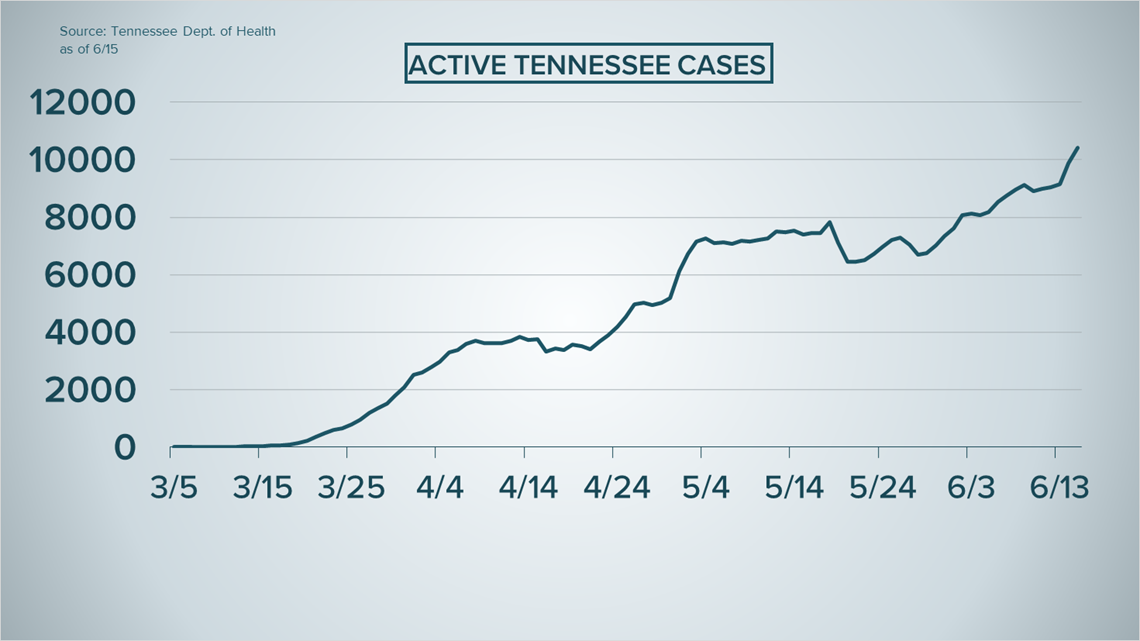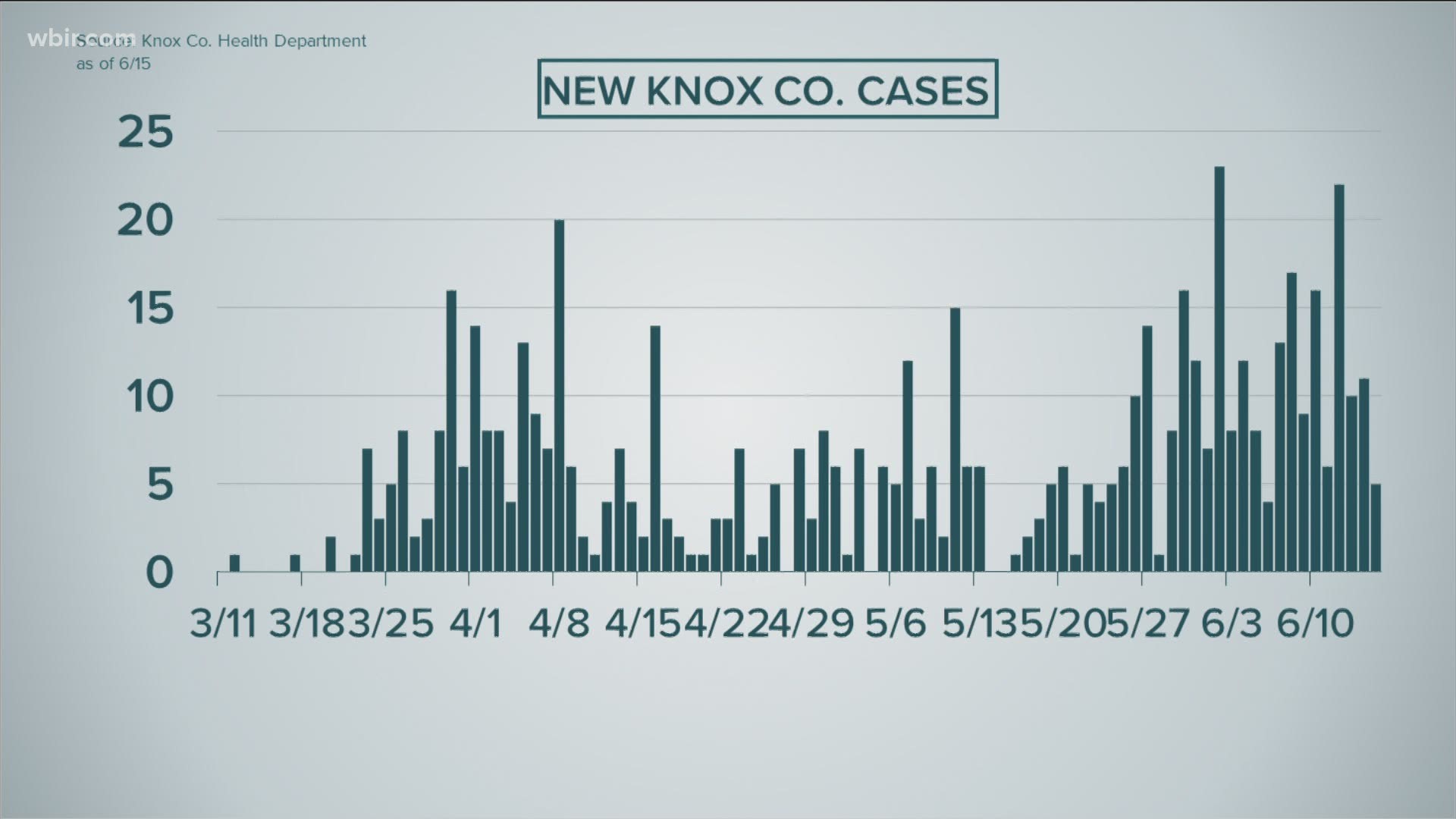KNOXVILLE, Tenn. — Driven by an uptick in the Chattanooga and Memphis areas, the state has seen a pronounced rise this month in the number of COVID-19 patients who require hospitalization, according to a report released Tuesday afternoon by the Vanderbilt University Medical Center in Nashville.
On Monday, the number hit 415. That's the highest single-day number so far.
It's been going up this month - 30 percent since early June, according to the medical center. June 7 marked the lowest number of hospitalized patients this month - 274, state figures show.
If the growth rate keeps up, the state could hit 1,000 daily hospitalizations in four to six weeks, the report said.


RELATED: 30,951 confirmed cases of coronavirus in Tennessee, including 20,062 recoveries & 462 deaths
The hospital and Vanderbilt University School of Medicine have been tracking virus trends since the March outbreak. Their model is one of several that state health authorities cite while talking about and planning how to respond to COVID-19.
The more people who end up in the hospital from the virus, the greater the strain it places on the ability of the health system to treat people. Hospitalizations from the virus are one area health experts watch closely to ensure facilities don't become overburdened.
Tuesday's announcement stressed that generally speaking the state hospital system is not yet under acute strain, "but a recent rise in cases, coupled with new modeling of hospitalizations, highlights that the situation must be closely tracked moving forward."
Knox County has seen a jump in positive cases this month, but hospitalizations remain low -- 4 as of Tuesday. Many of the new positive cases are in people age 21-40, not considered highly vulnerable to death or serious harm.
The Knox County Board of Health is set Wednesday afternoon to talk about next steps to further ease social restrictions.
Other areas have seen hospitalization growth, however. The Memphis and Chattanooga areas stand out.
Memphis has had a consistently high rate of positive cases and deaths. Hamilton County saw a rise initially in late March and early April and then flattened. Positive case rates, hospitalizations and deaths there have been going back up this month, state figures show.
While the Chattanooga area's cases and hospitalizations are up, Tuesday's report emphasizes it's still manageable.
"This situation does indicate, however, that the virus continues to entrench itself in new communities. As we noted in our last report, this can carry significant repercussions for the local economy if people begin to restrict their movements to and from these areas," the report states.


Vanderbilt said it's also possible an influx of patients from neighboring states, such as Georgia or Arkansas, could be affecting rates in Chattanooga and Memphis.
"If historical hospital use patterns apply to COVID-19 patients, we estimate that approximately 10-15 percent of COVID-19 patients currently hospitalized in Tennessee may be from neighboring states," the report states.
Local and state health leaders routinely stress the importance of practicing healthy habits to stop the contagious virus's spread. They include wearing a mask in public, washing your hands often and keeping at least six feet away from others in public.
Government restrictions on social gatherings have been easing in recent weeks in the state. But the public must take precautions to preserve those freedoms, experts warn.
“As we have since the epidemic began, we are continuing to heavily stress that Tennesseans need to keep doing what they did early on, and that is to be very vigilant about social distancing, be consistent with hand hygiene and do your part to slow the spread,” said Melissa McPheeters, research professor and co-director of the Center for Improving the Public’s Health Through Informatics in the Tuesday release. "It will be imperative to maintain a strong public health response in the form of widespread testing, effective contact tracing and recommendations for isolation of cases as we move forward.”

